In January this year our partner Bahari Hai organised and hosted a conservation festival in Watamu, a small town on the northern coast of Kenya. They invited us to help with the planning and execution of the activities. Our fisheries officer, Clay Obota, was among the attendees; this is his experience from the day.
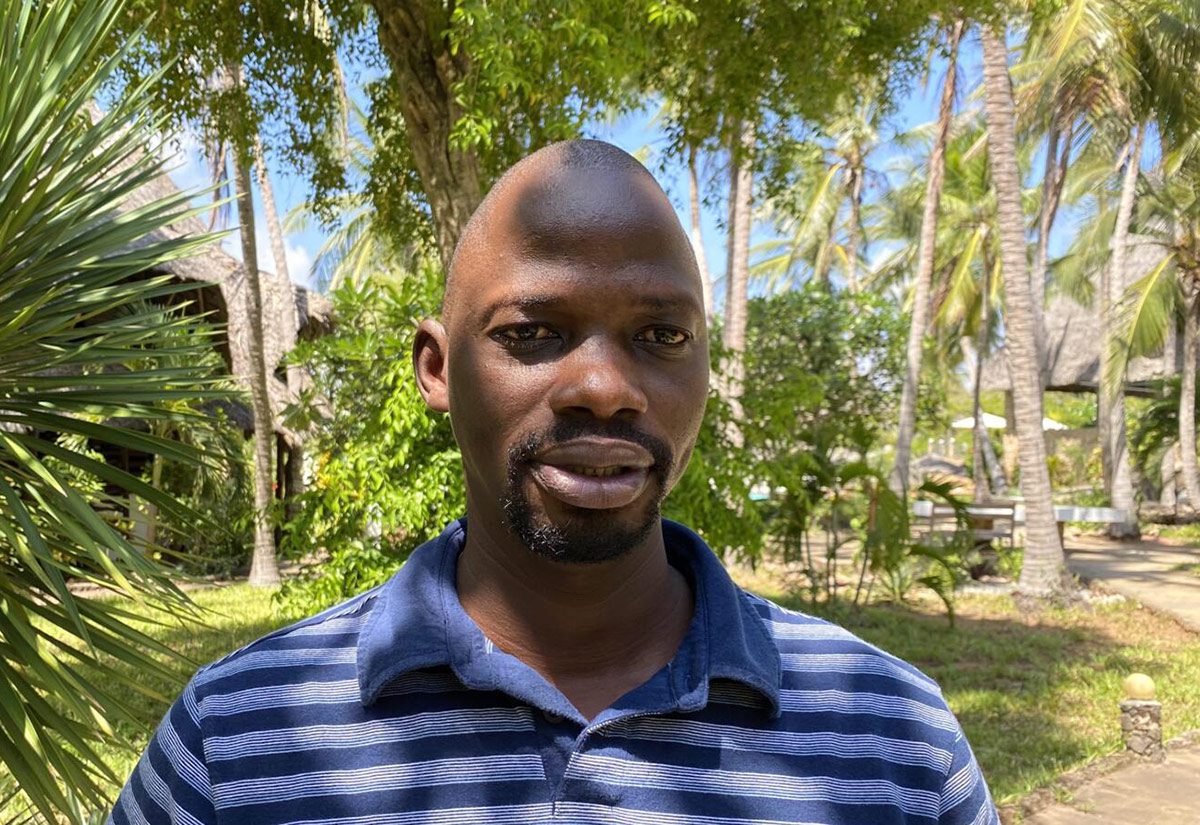
Clay Obota, Fisheries Officer, Blue Ventures, Kenya. Photo credit: Randall Mabwa, Blue Ventures.
I felt anxious before arriving at the festival. Since this was the first event of its kind for us, I wondered if people would show up and whether they would participate in all that we had planned for them. This feeling quickly changed when I saw the number of children in the conservation education section, it was buzzing with excitement. Some were colouring in different fish drawings, others were exploring the different fishing tools that were being showcased, and a group was participating in a beach clean-up activity.
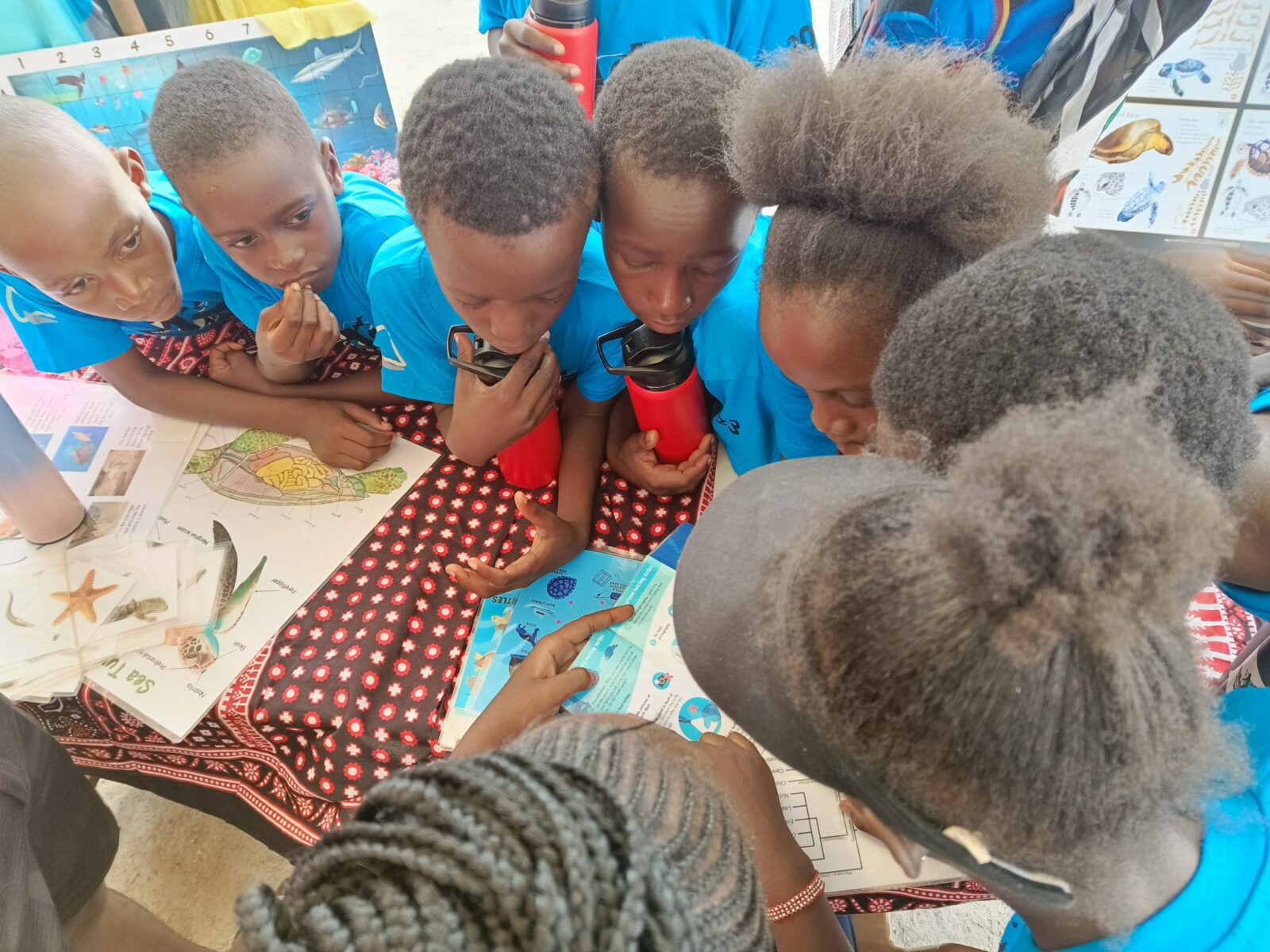
Children learning about marine life. Photo credit: Roxanne Mungai, Blue Ventures.
The festival aimed to celebrate the fishers and encourage their collective involvement in their respective beach management units (BMUs). We also hoped it would highlight sustainable fishing practices amongst them, especially those not part of any BMUs.
Next to the conservation education area, community members chatted as they patiently waited for the fishers who had gone out fishing at 5am that day. We kicked off the activities with a fishing competition where the fishers were paired in groups and briefed. As a fisheries officer, one of my roles in the planning process was to put together a list of species that the fishers could not catch per the laws of the nearby marine reserve.
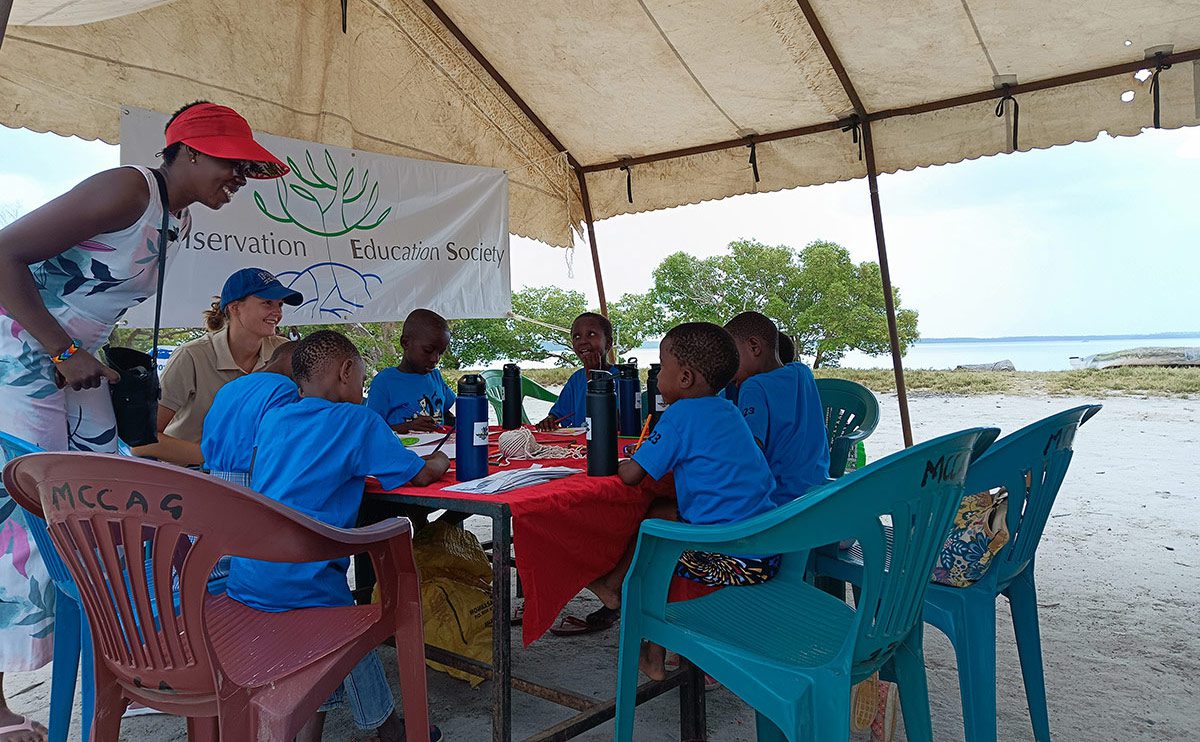
Part of the conservation education area of the festival. Photo credit: Roxanne Mungai, Blue Ventures.
The exercise gave us an opportunity to share information with the fishers on the importance of practising fishing methods that aren’t harmful to the ecologically significant Mida creek. We encouraged the use of traditional methods like basket trap handline and other fishing methods like the use of fence traps (uzio), which have minimal impact on the surrounding environment. We emphasised the harmful nature of methods like the use of monofilament which results in high bycatch and often entangles larger non-target species like turtles.
In addition to the various activities that were going on, there was educational entertainment in the form of skits and songs from Bahari Huru, a community-centred art project aimed at raising awareness of the importance of safeguarding our marine environment.
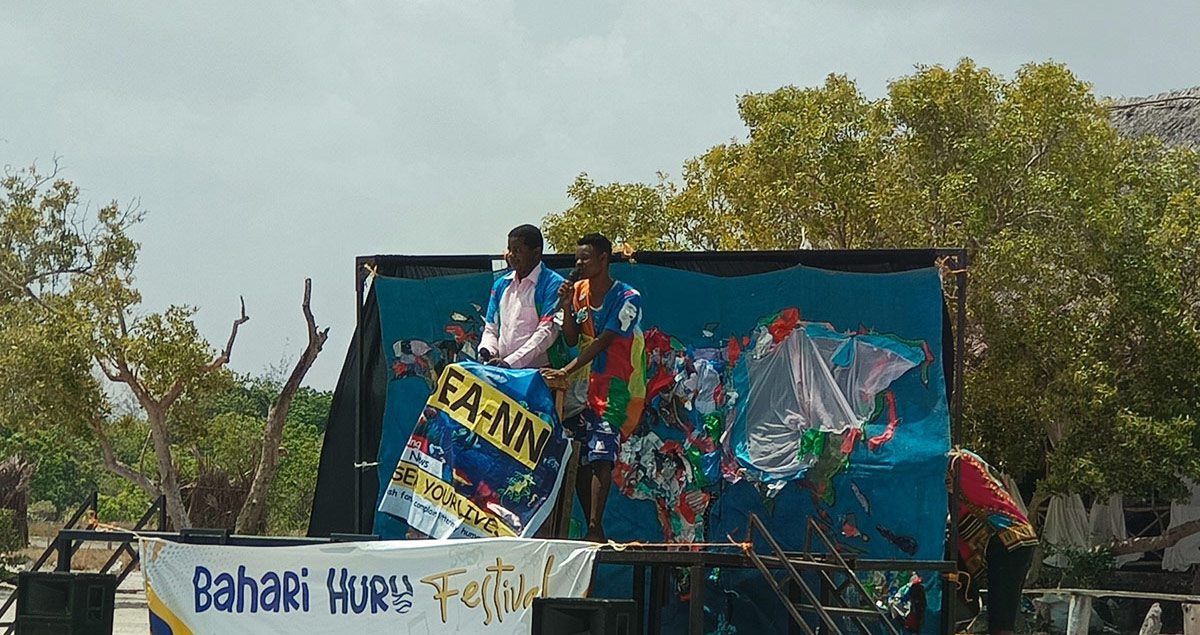
Bahari Huru performing a skit on the importance of marine conservation. Photo credit: Roxanne Mungai, Blue Ventures.
As the entertainment continued, a small crowd started gathering near the shore, and I curiously joined to find out the reason for the excitement. The fishers were coming in from the fishing competition, and we were all looking forward to seeing what they had brought in. Each team presented its catch which we weighed at the landing site to determine the winners. Even with the limit on target species and types of fishing gear, we weighed an impressive 25kg of fish from one of the pair of fishers.
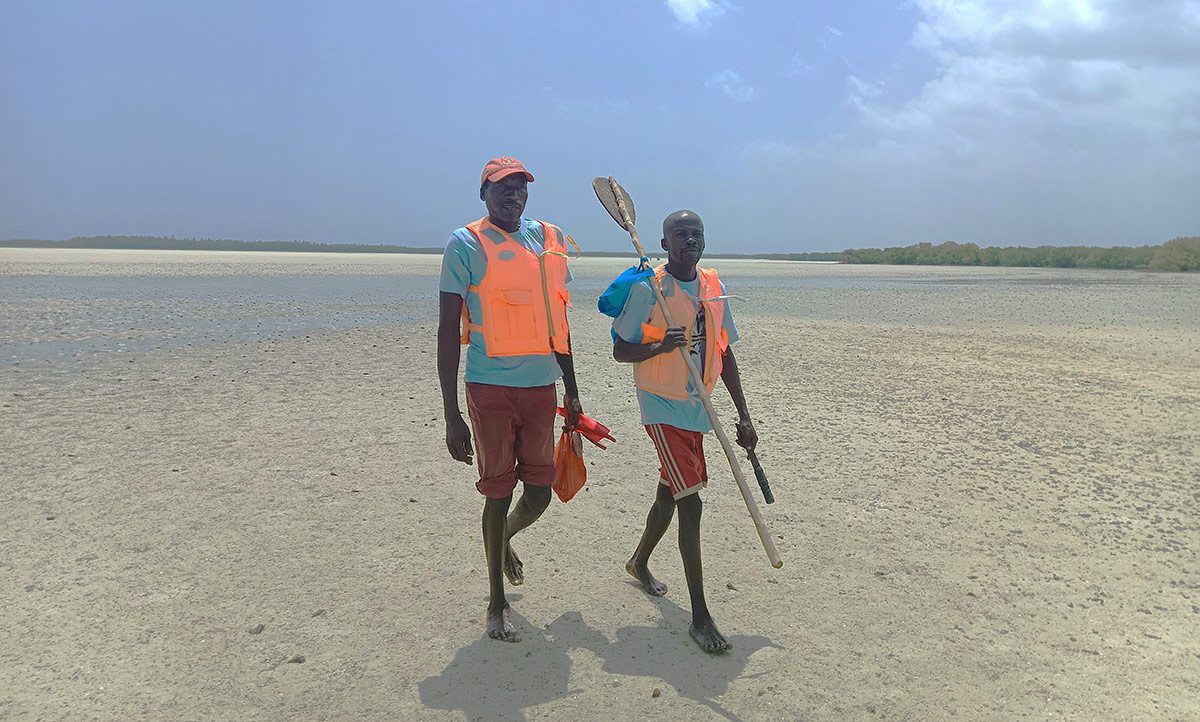
Fishers coming in from the fishing competition. Photo credit: Roxanne Mungai, Blue Ventures.
It was finally time to award the most skilled fishers. I could tell the fishers had been looking forward to this part of the day to earn their top skill in fishing bragging rights.
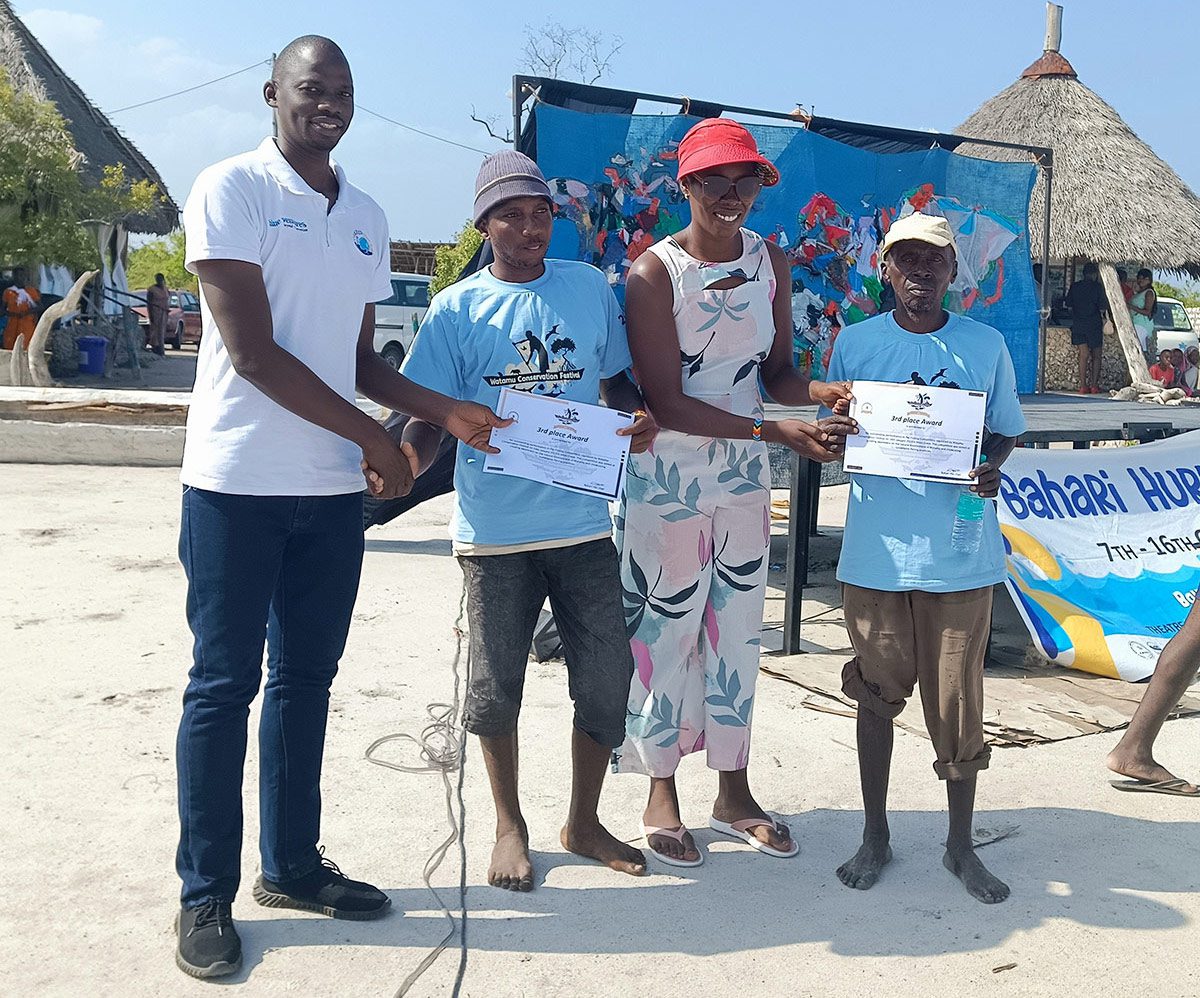
Blue Ventures team awarding fishers. Photo credit: Roxanne Mungai, Blue Ventures.
My highlight of the award ceremony was the celebration of the oldest fisher in the community, Sulubu Karisa. At 80 years old, he does not miss a beat and still supports his family through fishing, using the same method taught by his father. Karisa uses a wooden fence trap which he places near the shore, and then waits for the fish to swim in. This form of fishing is now very rare and yet highly sustainable as the smaller fish are able to swim out of the trap.
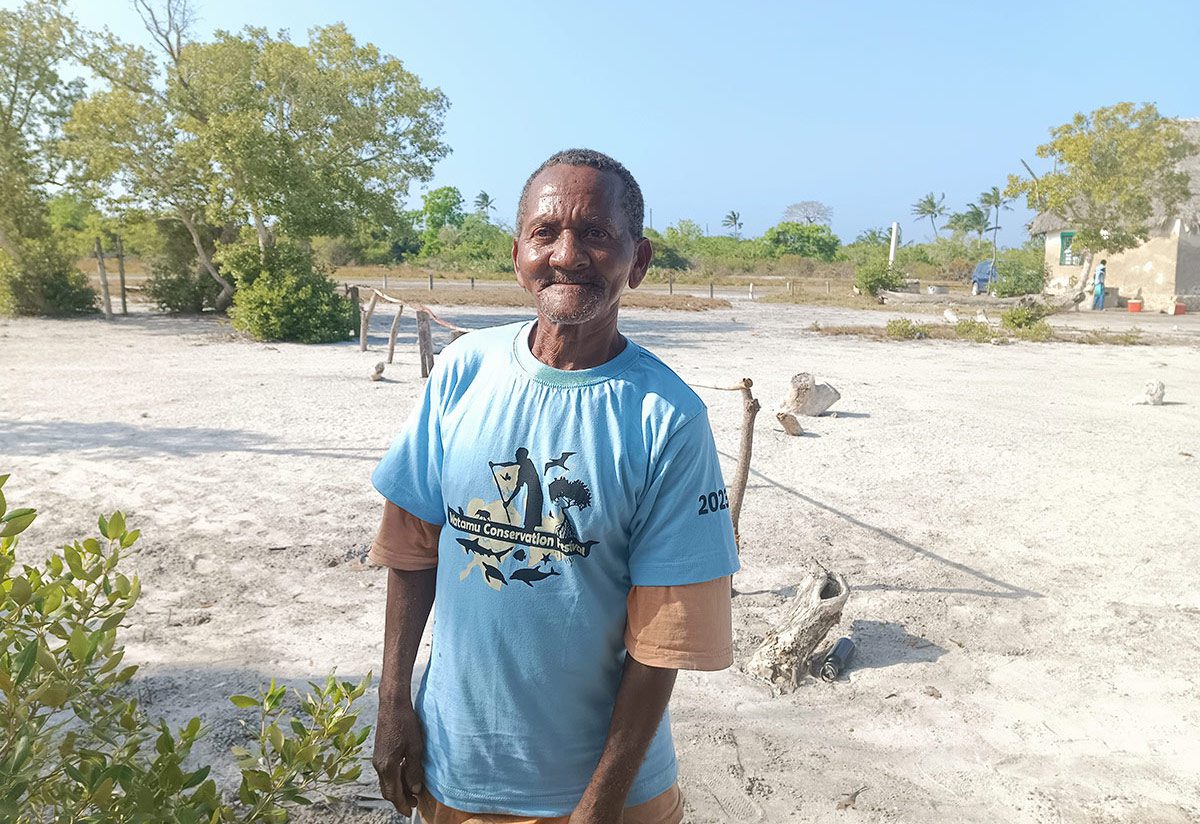
Sulubu Karisa – the oldest fisher in the community. Photo credit: Roxanne Mungai, Blue Ventures.
During his speech, he stressed to the younger fishers the importance of preserving and protecting their marine area. He explained the need to take into consideration future generations who would rely on the same resources. He was a great example of how sustainable fishing gear can provide a livelihood for a lifetime while causing minimal environmental damage.
I was happy to hear the recurring question of when another festival would take place as the events of the day came to an end. For me, that was a clear indicator that we had made an impact. It was refreshing to see the community, young and old, men and women, come together to celebrate the trade and learn from each other.
As we expand our work on the Kenyan coast, it will be vital for us to continue engaging fishers and identify innovative ways to bring communities together to empower them to take the lead in fisheries management and marine conservation.
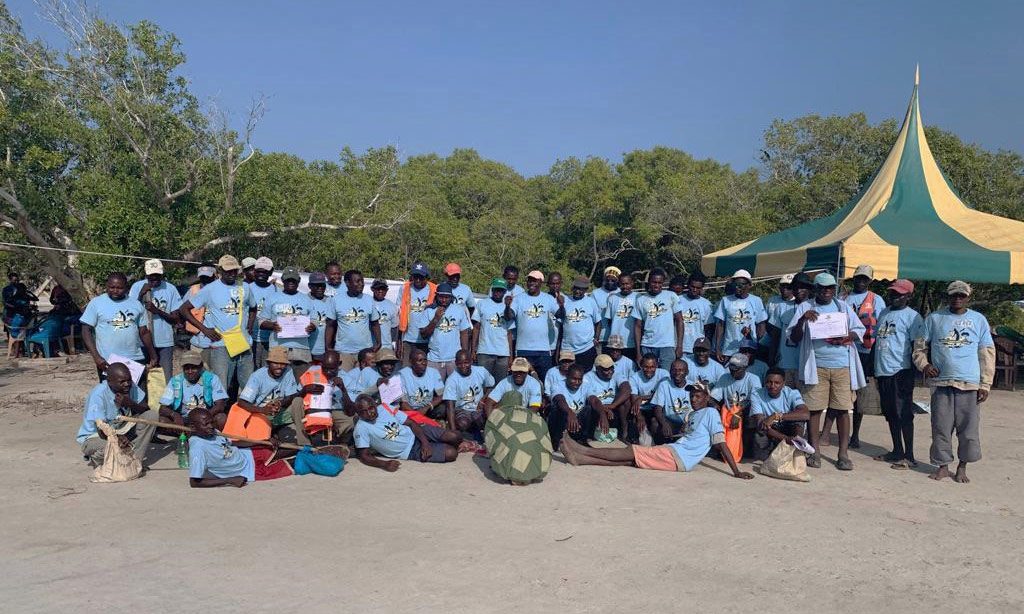
The group of fishers that participated in the fishing competition. Photo credit: Roxanne Mungai. Blue Ventures.


inspiring story, fishers need to be acknowledged in this way for what they do